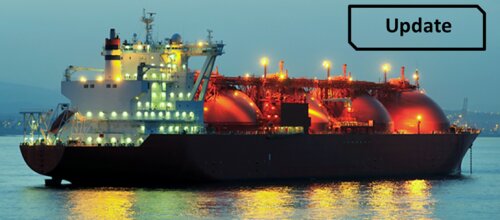View pictures

"Regulation and its impact on investment decisions in the shipping industry and beyond".

Rational?
Over the course of the coming decades, maritime transport could increase particularly as world’s population is anticipated to increase; and subsequently, consumption will continue to grow. To cope with the expected increase in pollution, new environmental rules and regulation are being introduced at a faster pace. On 1 January 2020 amendments to the International Maritime Organization’s (IMO’s) International Convention for the Prevention of Pollution from Ships (MARPOL) enters into force. IMO estimates that up to 70,000 ships will be affected by this stricter regulation (i.e. the amount of sulphur allowed in bunker fuel from 3.5% to 0.5% by 2020). Although the focus is now on regulations of Sulphur oxide (SOx) emissions, upcoming regulation on emissions of CO2 and NOx also needs attention. In addition, the shipping industry have until September 8, 2024 (US regulations by January 1, 2021) to comply with the Ballast water Convention (adopted in 2004, entry into force 2019). Regarding ship recycling, the potential entry into force of Hong Kong Convention is to be expected in 2020. To improve the shipping industry’s environmental profile, here, regional (e.g. EU) and local rules are in some cases even stricter. Clearly, competitive advantage will be directly linked with environmental performance of the shipping industry. And how will the actors in the maritime supply chain be affected by it?
The shipping industry are forced to make investments decisions: investing in a new ship, installing approved emission abatement technology (scrubbers, filters,…) on existing ships, opting for alternative fuels (LNG, Hydrogen), making choices of ballast water treatment systems, taking into account ship recycling, … Or is cold ironing (onshore power supply) an alternative solution? Complying with the new regulations therefore involves more spending than shipping has ever had to face. Will the first movers be able to benefit from a competitive advantage?
Aim?
To eliminate the ’blind spot’ related to the impact of regulation on the whole maritime chain
What?
High level management from the shipping industry (tramping, (container) liner shipping) enter into dialogue with the actors of the maritime chain and discuss case studies that can lead to sustainable co.innovation. As, challenges also bring about opportunities.
Concept
After the keynote speeches (academia, government (IMO)) and presentation of best practices by the industry, a panel discussion with people from the shipping industry, policy (EC), stakeholders of the maritime chain and the academic world will be scheduled. A network drink will close the event
Audience?
Ship owners, owners’ and time charterers, shipping associations, shippers, stakeholders maritime supply chain, freight forwarders, financial sector, marine insurance, dredging industry, ship building industry, technology companies, policy, Energy sector, bunkering firms, consultants, lawyers and (PhD)students
Program
WELCOME
15h00 – 15h15: Welcome by Ms. Virginie Martens, Head Corporate Coverage at BNP Paribas Fortis BNP Paribas Fortis
15h15 – 15h30: Welcome Vice-rector Silvia Lenaerts, University of Antwerp
SETTING THE SCENE
15h30 – 16h10: ‘Recent IMO developments with regard to Prevention of Pollution from Ships’ by John Calleya, Technical Officer – Subdivision for Protective Measures Marine Environment Division
BEST PRACTICES FROM THE INDUSTRY/SHARING INFORMATION
16h10 – 16u25: ‘Impact of changed regulation on the shipping industry’ by Mr. Alexander Saverys, CEO CMB
16h25 – 16h45: BREAK
16h45 – 17h00: ‘Jan De Nul Group’s response to new regulations’ by Mr. Robby De Backer, Jan De Nul
17h00 – 17h15: ‘The impact of sustainable regulations on terminal operators’ by Mr. Rob Harrison, CEO DP World Antwerp
17h15 – 17h45: Q&A
INTERACTIVE PANELSESSION
17h45 – 18h45: Panel discussion (incl. questions from audience)
Panel members:
- Prof. dr. Christa Sys, University of Antwerp
- Mr. Hugo De Stoop, CEO Euronav
- Mr. Jens Roemer, Managing director A. Hartrodt nv, Vice president FIATA
- Mr. Vincent Pascal, Head of Shipping and Offshore Finance, EMEA at BNP Paribas
- Mr. Antoine Kedzierski, Policy Officer European Commission, DG MOVE – Research and Innovation
The panel discussion will be moderated by Prof. Thierry Vanelslander
18h45-20h00 Network drink
NEW Location? Auditorium, BNP Paribas Fortis, Meir 48, Entrance “Wapper”, 2000 Antwerp.